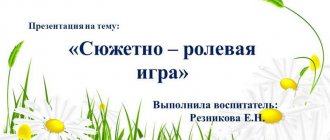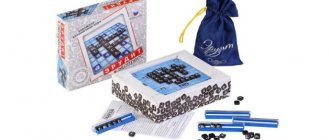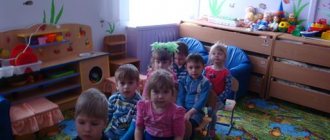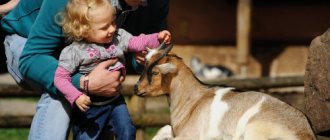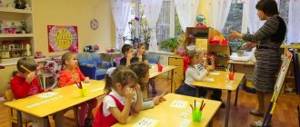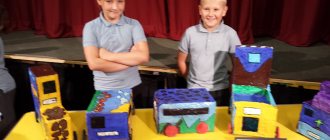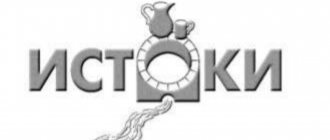Educational situation in the senior group “Front-line writing”
Gushchina Yulia Mikhailovna
highest qualification category
Syzran, Samara region
SP GBOU OOSH No. 23 “Kindergarten No. 70”
educational situation “Front letter”
senior group
Educational activities in the senior group: “Front-line letter”
Tasks:
"Cognitive development":
To consolidate ideas about the Great Patriotic War, veterans, and Victory Day. Expand your understanding of communications during the war years - correspondence between the front and rear. Practice the ability to correlate the sequence of work with the execution algorithm. Strengthen the composition of the family.
“Artistic and aesthetic development”:
Develop the ability to depict a plot on a given topic using different drawing techniques. Learn to fold paper into a front envelope. Develop the ability to listen to wartime songs and understand the meaning of the songs.
"Social and communicative development"
Explain that the letter is a personal message and it is incorrect to read other people’s letters.
“Speech development”:
Practice the ability to coherently and competently express your thoughts and prove your opinion. Develop the ability to answer the teacher’s questions accurately and concisely.
Methods and techniques:
Conversation, questions, creation of a problem situation, independent work of children, examination of the front-line letter, drawing up a diagram of the sequence of work..
Materials and equipment:
Hoop, front letter, paper, pencils, wax crayons, algorithm for folding a letter for each child
Software:
Record player. Recording war songs.
Forms of organizing joint activities:
| Children's activities | Forms and methods of organizing joint activities: |
| Productive | Folding paper into a front letter. |
| communicative | Conversation, examination of the letter, situational conversation about the war and branches of the military, activation of the dictionary |
| motor | Moving between different activity areas, crawling into the dugout |
| Cognitive | Consolidating knowledge about war, veterans, military correspondence |
| Musical and artistic | Listening to war songs |
Logic of educational activities:
| № | Activities of a teacher | Pupils' activities | Expected results |
| 1 | The teacher gathers the children around him. Guys, what holiday will be coming soon? May 9 is Victory Day. Who celebrates this holiday? To whom are we grateful for the holiday, for the Victory? ( to veterans ) | Children answer questions | Set children up for educational activities. Lead to a conversation about letters from the front. |
| The veterans are now very, very old. These are our great-grandparents. And on the holiday of May 9, they love to remember the years of the war: how they fought, how they defended their Motherland. Every soldier had a family in the rear. (ask to list family members). | List family members. | Strengthen the composition of the family. | |
| Each family was worried about their fighter. Some had mothers and fathers who fought in the war, some had children and brothers. And it so happened that relatives knew nothing about their military for months. How could you find out about each other before? (There were no telephones, televisions, etc.) Lead to the fact that people corresponded with each other, sent letters. During the war, the work of a postman was very dangerous. He had to deliver letters from the very front line, while under enemy fire | They express their versions. Listen to the teacher. | Expand your understanding of communications during war. | |
| 2 | Listening to the song “No Birds Sing Here” Questions about the content of the song: “Why did the postman have a hard time finding the soldiers?” “What did the postman bring to the soldiers?” | Children listen to the song carefully and answer questions. | Strengthen children's ideas about the work of a military postman |
| 3 | Show and review the front letter. Pay attention to the fact that previously letters were sent without envelopes, the letter itself was folded in a special way. Offer to guess why envelopes were not used? | Children examine the letter, watch it fold, and express their opinions on the question asked. | Introduce front-line writing. |
| 4 | Do you want to be a soldier? Let's imagine that we are soldiers and will write a letter to our family. Who will you write to? About what? (offer to draw a soldier’s everyday life, military operations, state of health, etc.) But how do we send our letters? Do we know how to fold a front letter? I will be a postman and teach you how to fold a letter the front way. | Children answer questions and discover a problem. | Introduction to the game situation |
| 5 | Explanation of the folding algorithm. Showing the sequence of folding a letter. Consideration of the folding algorithm. I point out to the children that the model can help us remember what, why and how to do. | Children listen and study the work sequence diagram. | Using a sequence diagram. |
| 6 | Completing of the work. Soldiers wrote letters in dugouts or in shelters to feel safe. You have to crawl into the dugout. Children climb through the hoop, take paper, and get to work. While the work is being done, war songs are played. | They crawl into the dugout, draw a letter, fold the letter. | Using the diagram at work. |
| 7 | Bottom line. Admiring. Children show their letters to each other and hand them over to the postman (teacher). I draw the children’s attention to the fact that a letter is a personal message. Reading and peeking at a letter, even if it is very interesting, is ugly. You can't do that. | Children show their letters to each other and hand them over to the postman (teacher). | Creating a favorable environment in the group, focusing on the further application of new knowledge. |
